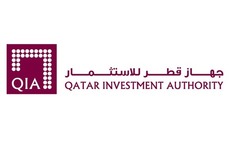
Profile: Batavia's Patrick Alexander
Patrick Alexander has been in Asia longer than the private equity industry itself. His experiences in Indonesia span Suharto, the Asian financial crisis and the country’s gradual rebirth
When Indonesia invaded East Timor in the 1970s, Patrick Alexander was there. Then a member of the Australian Diplomatic Service in Indonesia, he was the first diplomat into the area once the violence had eased.
"There was a lot of tension between Australia and Indonesia over the whole question of Indonesia moving in," recalls Alexander. "I was sent over Christmas 1978 to sort out the refugees who wanted to move from Timor to Australia for family reunions."
Alexander's own family hailed from the UK, with his doctor father and nurse mother relocating to Perth shortly after his two older brothers were born. Everybody knew everybody in the town they settled in, which caused Alexander to seek a less homogenous existence from an early age. After finishing school, he embarked upon a degree in history and politics at the University of Western Australia, before abandoning that course after a year to study law.
He didn't give up the politics entirely though, as before long he got himself elected as Students' Union president. "I once led a big march against parliament," says Alexander. "The government at the time had introduced a law which said that if there was a threat to energy supplies, the police could basically do whatever they wanted. I didn't agree with that."
Ticket to Asia
After graduating, it was this interest in politics - along with his desire to gain a ticket out of Perth - that saw Alexander become a trainee diplomat. Once he was reasonably proficient in Bahasa Indonesia ("the easiest Asian language to learn") he was sent to the Australian embassy in Jakarta. It was the mid-1970s, in the midst of the Suharto era, and Alexander often found himself accompanying senior ministers (and on occasion the prime minister) to talks with the former dictator himself.
"He was a very clever man, very astute," he says of Suharto. "He listened well. The problem was that he overstayed his welcome. He had generally done quite a good job putting together a country which was a mess before he took over in 1965. It wasn't all about abuse of human rights."
But by the time his posting in Jakarta came to an end, Alexander decided he was too much of a risk-taker to be satisfied with a career in the civil service. He jumped at the chance to join Chase Manhattan and spent 18 months in New York learning about finance before returning to Indonesia as a fully-fledged banker in 1982.
Alexander spent three years putting together loan syndications for government entities and then became managing director of Chase's investment banking arm in Hong Kong. "Certain aspects of life I found a bit constraining," he recalls. "You could go and out walk in country parks, which I did, but more often that not you went out for lunch and to walk around the mall."
Despite this unease, Alexander was to remain in Hong Kong for seven years, becoming one of the first supporters of the Hong Kong Venture Capital Association. He attended meetings of the trade body alongside 20 other members, including Victor Fung, who went on to become chairman of the Li & Fung Group. In 1988 he left Chase to gain experience in principal investing, working first on behalf of the Sophonpanich family (who founded Bangkok Bank) and later for Hong Kong property billionaire Ronnie Chan where he helped set up the ASEAN Strategic Capital Fund - one of the first venture vehicles in Southeast Asia.
By the early 1990s, though, the future was looking bright for Indonesia, so Alexander returned. After setting up two small venture funds, he was approached for a joint venture by former Hong Kong bank the Peregrine Group, and in 1992 the $82 million Batavia Investment Fund was raised.
"In hindsight, things were looking too good," Alexander admits, because in 1997 the Asian financial crisis hit Indonesia harder than anyone had envisaged. Not only did the 85% devaluation of the rupiah all but wipe out Batavia's first portfolio of investments, but the added strain caused by the collapse of Suharto's regime and fears about the spread of al-Qaeda from the Middle East led to the disintegration of the newly raised Batavia Fund II.
"Luckily I was able to make a reasonable livelihood and enjoy life in the interim," says Alexander. He refused to admit defeat and became involved in the sale of Astra International - a deal which Batavia had been offered shortly before it collapsed.
Rebuilding phase
Under Alexander's guidance, Jardine Matheson successfully acquired Astra in 2000, and the firm has since gone on to become the largest listed company in Indonesia by sales, returning a money multiple of around 30x over the past 12 years. He remains a board member at Astra, combining these duties with investments in several startup companies in the Indonesian resources sector. He claims that 85% of these have generated positive returns.
Now resident in Jakarta - with a house in Bali which he built himself during the crisis - Alexander balances his career with a bustling home life: he recently remarried and has a six-year-old daughter and a two-year-old son, as well as two older sons based in the US and Australia. Having recently agreed plans to form a new private equity partnership in Indonesia, he is proud to have been able to build an independent life around things he is passionate about.
It comes as little surprise to hear he plans to dedicate the rest of his working years to projects in private equity or venture capital in the country that has embraced him as one of its own.
"Indonesia is a fascinating country, and it's good to see it developing a reasonable standard of living," he explains. "Despite the vicissitudes it has been through, many new investors are coming in. I think now is finally the time for Indonesia."
Latest News
Asian GPs slow implementation of ESG policies - survey
Asia-based private equity firms are assigning more dedicated resources to environment, social, and governance (ESG) programmes, but policy changes have slowed in the past 12 months, in part due to concerns raised internally and by LPs, according to a...
Singapore fintech start-up LXA gets $10m seed round
New Enterprise Associates (NEA) has led a USD 10m seed round for Singapore’s LXA, a financial technology start-up launched by a former Asia senior executive at The Blackstone Group.
India's InCred announces $60m round, claims unicorn status
Indian non-bank lender InCred Financial Services said it has received INR 5bn (USD 60m) at a valuation of at least USD 1bn from unnamed investors including “a global private equity fund.”
Insight leads $50m round for Australia's Roller
Insight Partners has led a USD 50m round for Australia’s Roller, a venue management software provider specializing in family fun parks.







